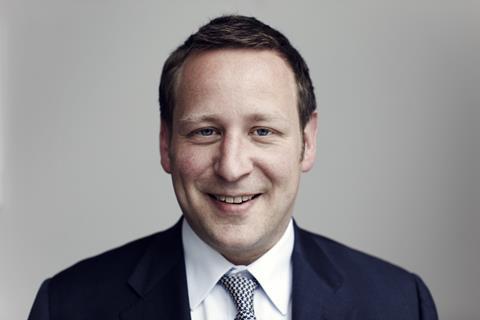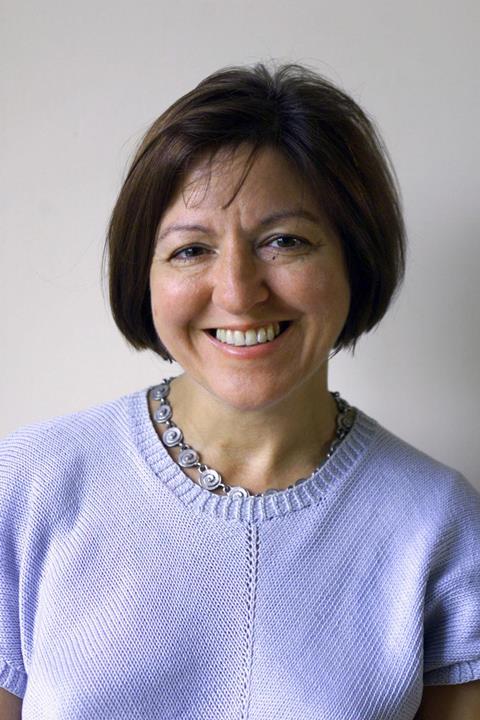What does the previous failed attempt to privatise Channel 4 say about the prospects of avoiding a sale next year? In extracts from her new book, Maggie Brown looks at what happened last time
Whittingdale committed to the cause
When David Cameron won the 2015 election with a clear majority, John Whittingdale was appointed culture secretary and presented with an unexpected opportunity to realise a long-held goal: to take Channel 4 out of the state sector. As a junior politician, he had tried and failed in 1996, and this time he again found “resistance at every stage”.
This included the Channel 4 board. He believed he had a couple of sympathisers on it but was only sure of “my friend Paul Potts [former chief executive of PA]. We go back 30 years to his journalism days.
He certainly didn’t swallow the C4 is wonderful line of ‘how many Baftas have we won this week?’”
In June [2015], C4 chair Lord Terry Burns led a meeting to the DCMS just as parliamentary questions about privatisation were being put down. He referred to his alternative plan to turn C4 into a not-for-profit mutual trust, a company limited by guarantee.

Burns returned in September to present it formally to Whittingdale and culture minister Ed Vaizey, though some board members had advised against a proposal suited to a Labour government. It sparked a hostile reaction.
“I could see no benefit at all,” said Whittingdale. “Under the proposal, C4 was literally accountable to nobody. It provided no return whatsoever apart from securing C4’s future and allowing them to sail on. I couldn’t find anyone who thought much of it. That was where my relations with Terry started to deteriorate.” Vaizey agreed: “No one was impressed.”
Ofcom chair Dame Patricia Hodgson had already put forward a proposal to extend Burns for a year. “We resisted – no way were we going to allow that; she got that totally wrong,” said Vaizey. “Neither of us was a huge Burns fan, we felt it was more of the same. Why was it John asking these questions? It should have been the C4 board asking the ownership question.”
Whittingdale said it was an attempt to bounce him into a decision. “[Hodgson] thought the next culture secretary would come in without any real knowledge of broadcasting and she would say Terry was doing a very good job,” he said. “I knew a lot about C4 and I was not going to buy that.”
Later that month, an internal Cabinet Office memo headed ‘Assessment of C4 Reform Options’ was snapped by a photographer as it was carried into Number 10, with Whittingdale and business secretary Matt Hancock’s names on it.
In October, Whittingdale finally had discussions with Cameron and Chancellor George Osborne about exploring privatisation, which they encouraged but did not specifically support. “They both said they were quite attracted to the idea,” he said. The PM agreed the Shareholder Executive, the Cabinet Office and the Treasury should undertake an analysis of options.
For Whittingdale, “the process started from the moment I had permission – when I rang up David Abraham and told him to give the Shareholder Executive [which held C4 shares] access to the accounts”. Then DCMS officials led by its senior official Hugh Harris went to C4 to set the review formally under way with a sheet of seven requests.
“One key move by Whittingdale was to appoint as adviser Ray Gallagher, a former Sky corporate lobbyist”
These were: detailed financial information for the past three years; current year performance; financial forecasts for the next three years; analysis of programmes for the past 12- to 24-month period and the economic contribution and return by key programme type; an assessment of the publisher-broadcaster model, strengths, weaknesses and potential for change; assessment of the cost of moving C4 to the north; and a copy of a 2015 Oxford Economics Report on C4’s contribution to the UK economy.
Critical views of C4 were assembled
One key move by Whittingdale was to appoint as adviser Ray Gallagher, a former Sky corporate lobbyist. Since 2006, he had been analysing C4’s annual reports. He concluded: “It was overseen too benevolently by Ofcom, had a fuzzy remit partly based on attitudinal surveys and was overpaying its top executives.”
Gallagher described C4 as “the strangest beast, as if the National Health Service was running fast-food franchises to pay for public health programmes, or a government-owned public educator publishing chick-lit or comics to subsidise books”.
“Privatisation for John [Whittingdale] was an article of faith. He felt incredibly strongly about it”
Ed Vaizey, Former culture minister
His eagle eye had spotted an attempt by C4 to keep the full details of compensation payments (£731,000) to sacked chief executive Andy Duncan out of the 2009 annual report.Vaizey said: “Privatisation for John was an article of faith. He felt incredibly strongly about it. John’s trump card was C4 not adhering to its remit – it had left it behind long ago – and its obsession about this hugely expensive building [HQ in Horseferry Road].”
The issue of whether C4 Corporation should be audited more rigorously as a conventional business run with the discipline of a profit-seeking company rather than a non-profit one was debated within the C4 board, but not implemented.
“To reach a valuation they [government officials] had to dig deep into accounts, which are not clear. They are not produced on a profit-and-loss basis,” noted Whittingdale, who meanwhile was conducting exploratory conversations with potential buyers.
A united C4 board was vital
Chief executive David Abraham became so concerned about government pressure and a potential board split in autumn 2015 that he asked the corporation’s external lawyers to remind them of their duties. “A Magna Carta moment,” he said, for a broadcaster challenging government power, to serve as a useful guide to future challenges.

The five point Summary of C4 Corporation (C4C) Board member obligations/duties said: “Board members have to act in the best interests of C4C, have a duty to put it ahead of personal interests. They have a duty to ensure confidential information is disclosed only to the extent required by law. Their duties and obligations are owed to C4C, not to the Government, Parliament, DCMS or Ofcom. In the context of the current DCMS process, there is a clear duty on members to protect C4C confidential information and limit disclosure, while complying with its statutory duties. It is incumbent on the board to form a view on what would be in the best interests of C4C and to pursue action… appropriate to give effect to that view.”
The advice was safely filed away in C4C’s archive.
Tory politicians were key to C4’s fate
C4’s in-house team of eight public relations experts seized the initiative in opposing privatisation. They identified three target groups: Conservative MPs and senior civil servants; the press and TV industry leaders; and opinion formers.

They were led by Dan Brooke, director of marketing and communications and a C4 board member. His principal strength lay in social skills. He was at home in the upper strata of the Conservative Party as the son and grandson of two former cabinet ministers.
He accepted that a third of Conservative MPs were unlikely to engage, so concentrated on the 220 who were biddable. Invites to screenings, Film 4 premieres, roundtable discussions and days out to Ascot, Cheltenham Gold Cup and The Grand National were offered.
The battle was waged between January and April 2016. The House of Lords was then persuaded to air the controversy with an inquiry conducted by its Communications Select Committee. The peers concluded: “It is our clear preference that the status quo be maintained as there are more risks than benefits involved in privatisation.”
- Edited extracts from Channel 4 A History: From Big Brother to the Great British Bake Off (Bloomsbury, June 2021)

Broadcast’s Not 4 Sale anti-privatisation campaign has attracted signatories from 160 indie bosses, along with a clutch of industry-wide organisations.
If you would like to join email not4sale@broadcastnow.co.uk indicating whether you are joining in a personal capacity or signing up your business, to enable Broadcast to highlight each area when publishing the results.









![Eleven [Jamie Campbell, Joel Wilson]](https://d11p0alxbet5ud.cloudfront.net/Pictures/274x183/8/1/7/1472817_elevenjamiecampbelljoelwilson_770737.jpg)




















No comments yet